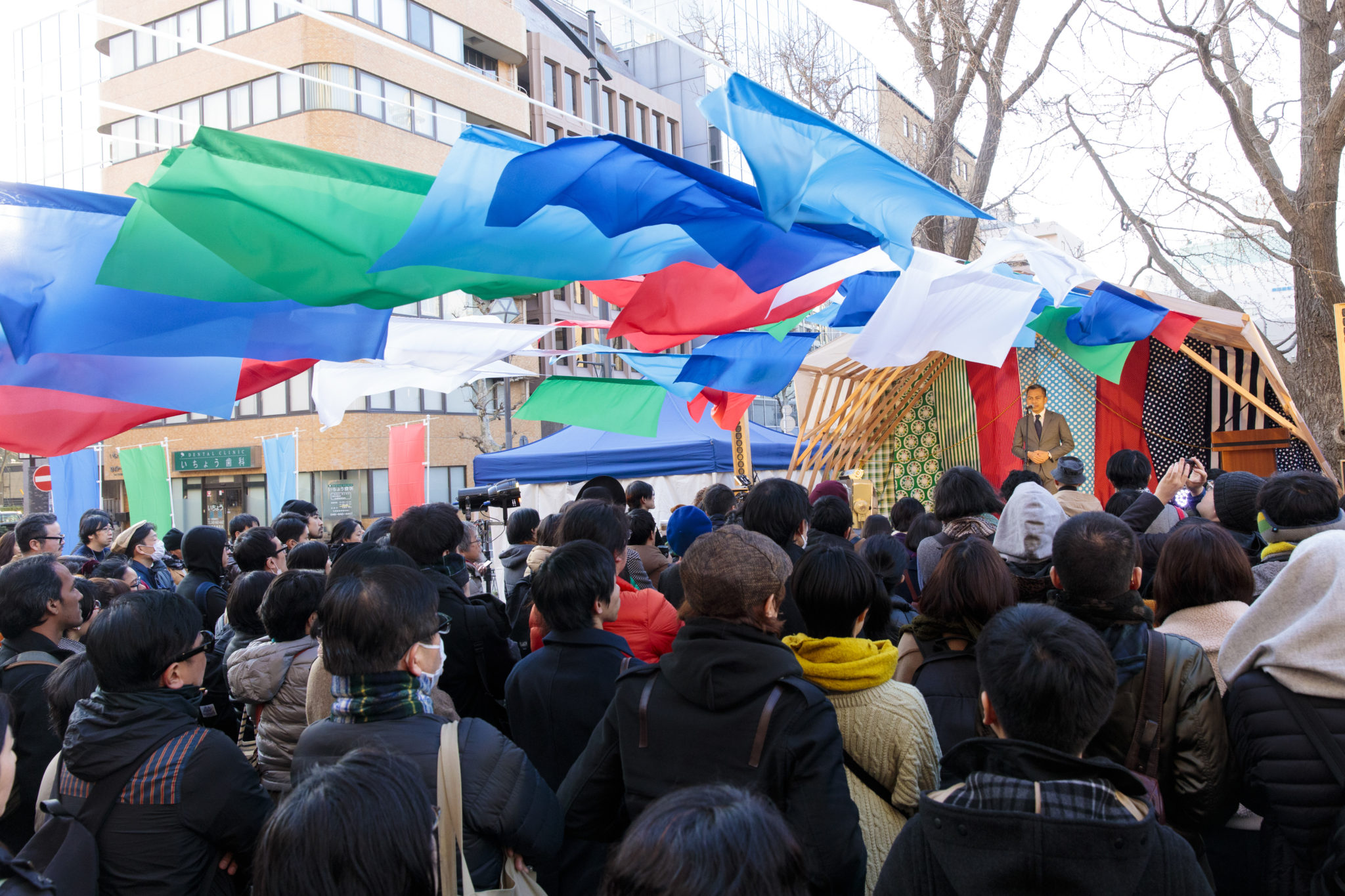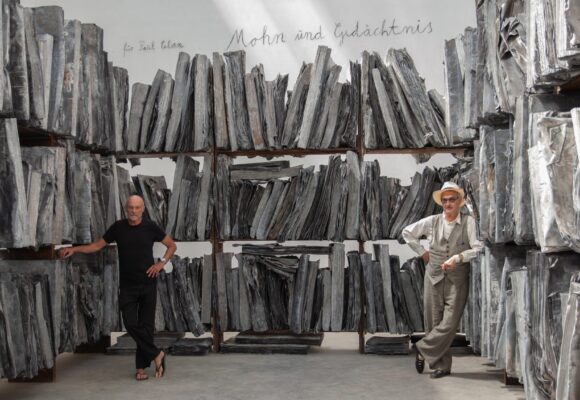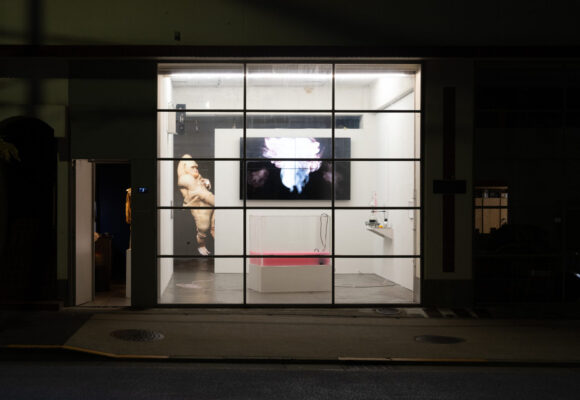Architectural historian and critic, was born in 1967 in Paris. Professor at Tohoku University. Commissioner for Japan pavilion at the Venice Biennale of architecture 2008. Artistic director of Aichi Triennale 2013 Publications include “Contemporary Japanese architects : Profiles in design”, “Architecture and Music” etc.
Photo: Hideto Maezawa
On February 17th, Fahmi Fadzil stood on Nihon-Odori street and appealed to the general public, claiming that there is no dividing line between “arts” and “politics.” This was a comment that seems to be embodying the final day of this year’s TPAM. The program that I saw on that day consisted of three lecture performance style events about political, social and historical issues in Southeast Asia.
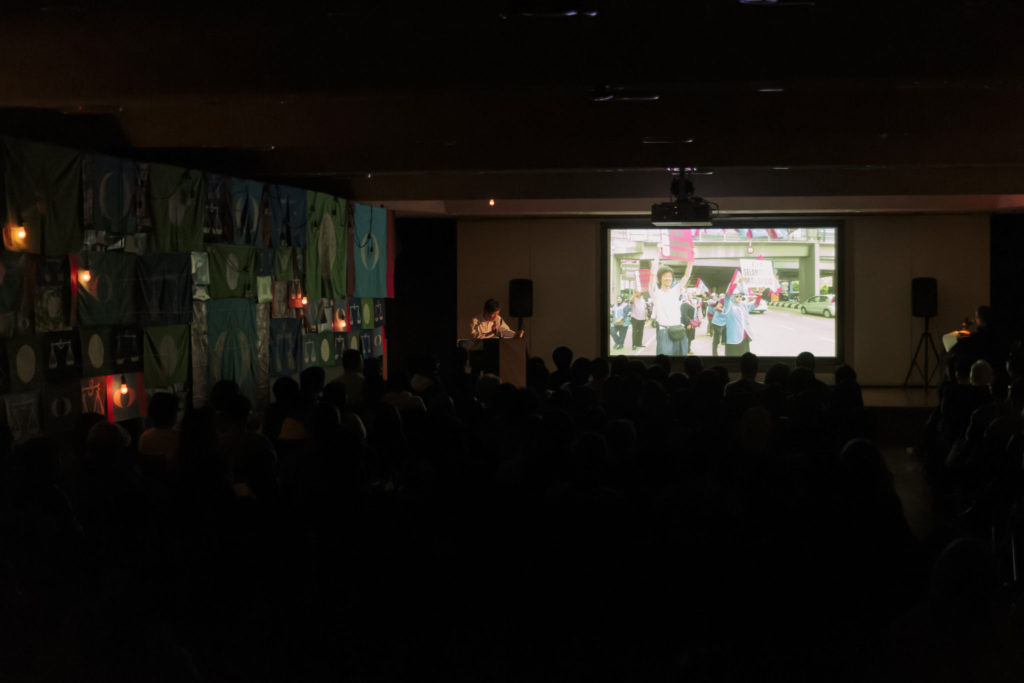
Photo: Hideto Maezawa
“GE14” was made up of two parts. Part one featured a documentary film about Fahmi Fadzil, a performer who ran as candidate – and was eventually elected – for the historical first change of government in Malaysia after the loss of the ruling party that hadn’t changed for sixty years since the country’s independence, accompanied by commentary by Zan Yamashita, who had conducted on-the-spot research. Through his speech jumping between humorous and impassioned elements, Yamashita illustrated the crustal movement that had occurred in Malaysia. While being reminded of the Japanese government and the dominating sense of resignation assuming that nothing will ever change, I felt somewhat envious witnessing the public value that an election is supposed to have. In the second part, the setting changed from the theater to an outdoor stage, on which Fadzil himself appeared as a speaker. It must have been troublesome to get permission to use the public road, but it was absolutely worthwhile, as the arrangement allowed the audience to relive how Fadzil literally started his political campaign on the street. It was in fact on the street where Fadzil developed his profluent speaking skills for the people to enjoy and be encouraged to stand together and overthrow Goliath.
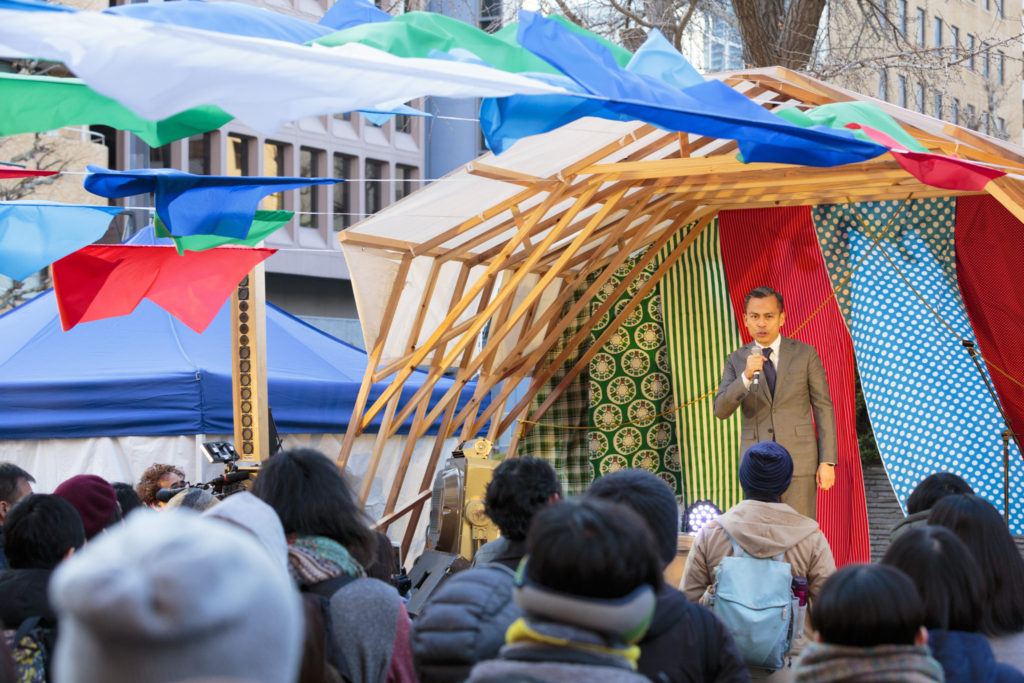
Photo: Hideto Maezawa
The next piece was ”A Notional History” by Five Arts Centre. This was again related to the change of the Malaysian government. New history textbooks will be published in 2020, and regardless of their supporting role on Malaysia’s way to independence, the Malayan Communist Party is being erased from the country’s official history. The work is an attempt to unearth the party’s achievements. Containing weighty interviews with aging members of the communist party, an analysis of school textbooks, records of a public forum, song and music, the unfinished documentary movie poses various questions in the present progressive form. In the research process, Fahmi Reza was exposed to harsh criticism for seemingly acknowledging the communists’ armed conflict, and such matters of historical awareness are again something that applies to the situation in Japan as well.We all should be aware of the relationship between authority and history, without being misled by ideologies dividing into black or white, friend or foe.
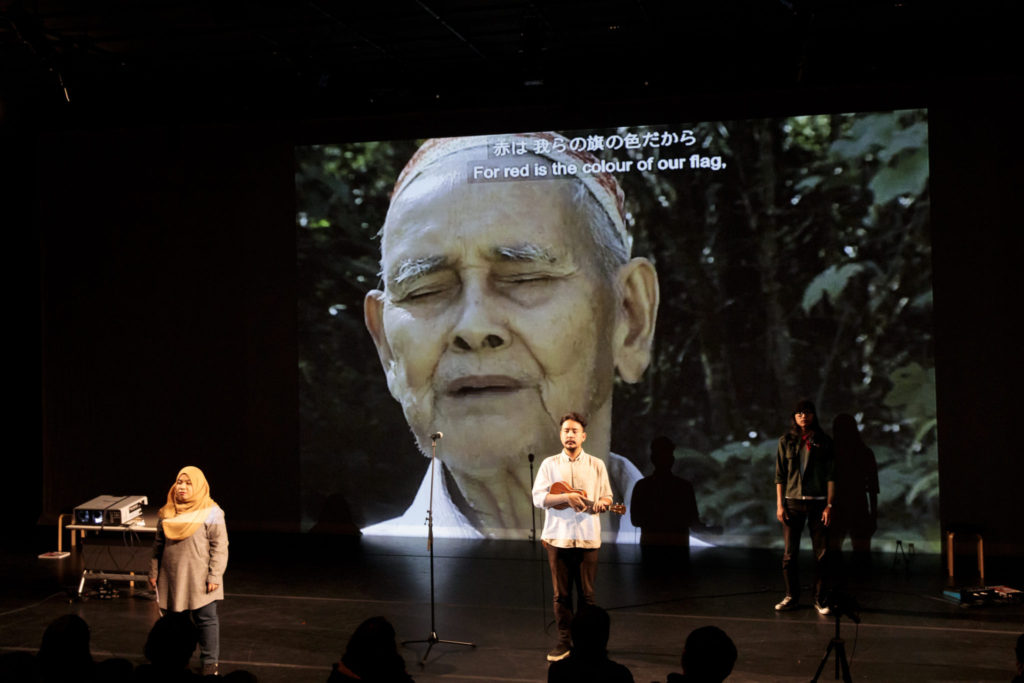
Photo: Hideto Maezawa
Irwan Ahmett’s ”Constellation of Violence” is work about the mass killings of communists in Indonesia after the events of September 30, 1965, which have been widely introduced in the documentary movie “The Act of Killing” (2012). This work employs again the medium of video to discuss issues of violence that still continue to this day, whereas the contrast between the difficult topic and the spectacular and overly beautiful ending was slightly bewildering. To us Japanese, the close political and economical relationships between both countries that Indonesian social history expert Aiko Kurasawa pointed out in her opening lecture seemed like a rather heavy question. Anyway, while the subjects of these three pieces probably aren’t very familiar to people in Japan, considering the present situation, they were surprisingly alarming in their critical nature, reminding and encouraging the audience that these issues are anything but other people’s affairs.
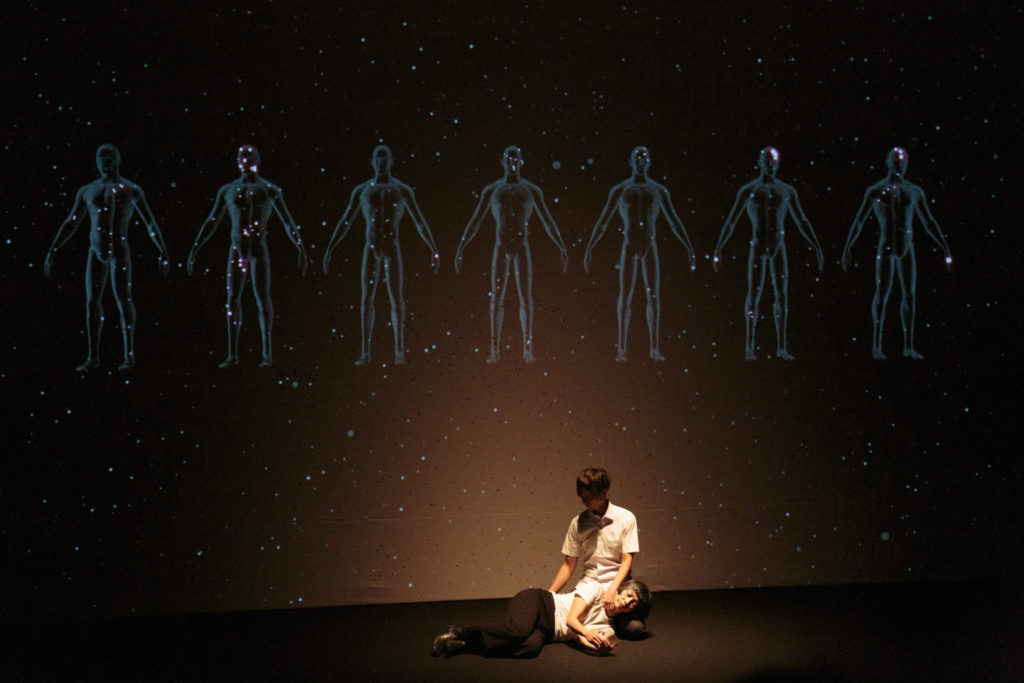
Photo: Hideto Maezawa
Translated by Andreas Stuhlmann
INFORMATION
TPAM “GE14” / “A Notional History” (work in progress) / “Constellation of Violence”
TPAM (Performing Arts Meeting in Yokohama) 2019.2.9 - 2.17


